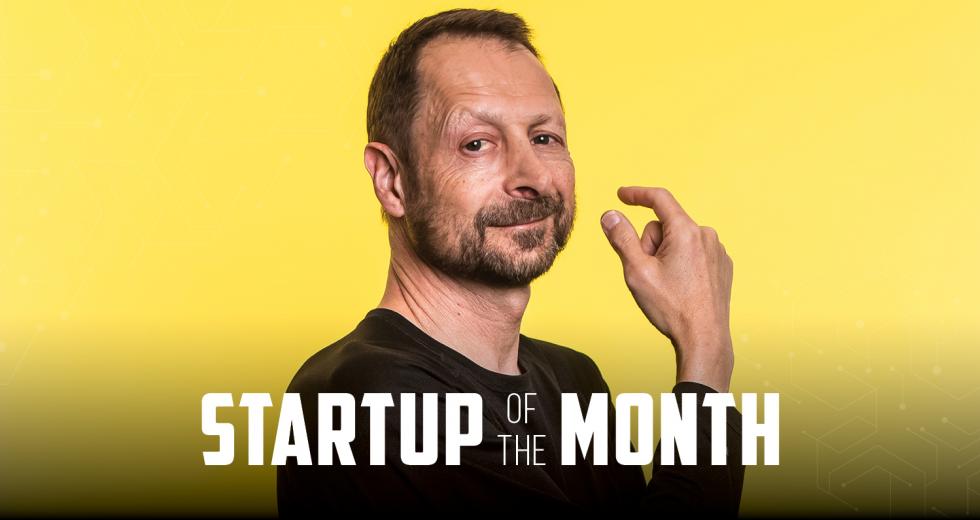Anybody who says video games are bad for your health hasn’t met Dr. Tony Simon.
He’s a cognitive neuroscientist and cofounder of Cognivive, a Davis-based therapeutics company. His startup develops “digital therapeutics,” i.e. treatments in the form of virtual reality games to reduce cognitive and motor impairments in brain injury patients and children with developmental disorders.
Built on his research and others, the concept suggests that brain injury and some developmental disorders cause information about space and time to get lost in translation from the outside world to the brain.
Related: Startup of the Month: Newell’s Botanicals
Related: Startup of the Month: Nominations
Related: Cognivive wins at UC Davis Big Bang Competition
“This is rather like having a low-resolution digital camera image compared to a high resolution image of the same scene,” says Simon, associate director of behavioral sciences at the UC Davis MIND Institute.
As a result, it becomes harder for injured patients to estimate distance and speed that might control movements, such as picking up and drinking from a cup. But Simon says his customized action video games can help improve the function of affected brain systems. Designed to have the patient generate specific movements, these treatment games tell patients where to look and how to move their hands and arms. The feedback gradually “tunes” the brain, Simon says, which makes the hand/eye coordination better and more accurate. The science, he adds, is what differentiates his games from other apps in the market.
“In the past, there were many brain-training apps, many of which had little or no science behind them,” Simon says. “Some made claims that they could not support and were fined by the federal government, while others failed to deliver the results they promised.”
Simon had the science background, but to put the concept to practice, he linked up with game designer, Ted Aronson, who became Cognivive’s chief creative officer. Aronson has previously developed therapeutic games for children on the autism spectrum and helped researchers design games to motivate kids to exercise.
“In my experience with these games, I’ve noticed that it’s typical for people to design a basic exercise game,” Aronson says. “You do an exercise and you get a badge or progress on a map. These things break down after a while for players, so I asked myself, ‘How can I make the activity fun, then build something around that?’”
Paul McClish, a study participant for one of Cognivive’s earliest prototypes, plays brain games online to help keep his memory and mind sharp, he says. But these games are two-dimensional, which he says can’t compare to the VR games. “Using Cognivive’s three-dimensional virtual reality is even better and will probably be attractive to a greater set of mind study volunteers,” he says.
The entire process for Cognivive has been a remote collaboration. Simon is in Davis and Aronson works out of an office in Boston with Joey Salisbury, the lead developer. These days, technology makes it easier than ever to connect and share ideas long-distance, but that doesn’t mean communication hasn’t been tricky.
“We’re relying on two disparate skillsets,” Aronson says. “I’m a programmer with very little understanding of cognitive science. Tony is a well-decorated researcher, who doesn’t know much about games. One of the biggest challenges was figuring out how to talk to each other in terms we could understand.”
In all 2017, Sara Howard came aboard as Cognivive’s business development manager with personal motivation. Her dad suffered a hemorrhagic brain stem stroke, which gave her “extra incentive to bring good into the world through new digital health technology,” she says.
Since launching in January 2017, the team has received a $300,000 small business grant from the National Institutes of Health and another $275,000 in angel funds. In November, Cognivive was named the winner in the “Medical & Health – BioPharma” category of the 2018 Sacramento Region Innovation Awards, which recognizes companies — from startups to established businesses — for breakthrough creations.
“The magic thing we have is this combination of real game design, science and clinical expertise,” Simon says. “By taking a really strong evidence-based approach to designing and evaluating our treatments, we are really differentiating ourselves from those kinds of ‘health and wellness’ products to create real therapeutics, just like a pharma company would but our drugs are compounded using digital instead of chemical components.”



